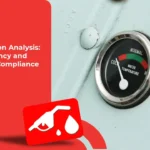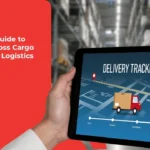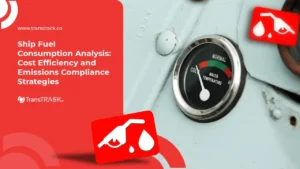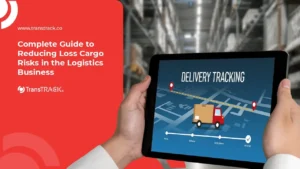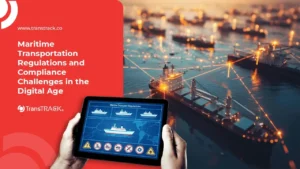Smart Logistics: Digitalization Solutions for Modern Logistics
Posted on September 19, 2025 by Nur Wachda Mihmidati
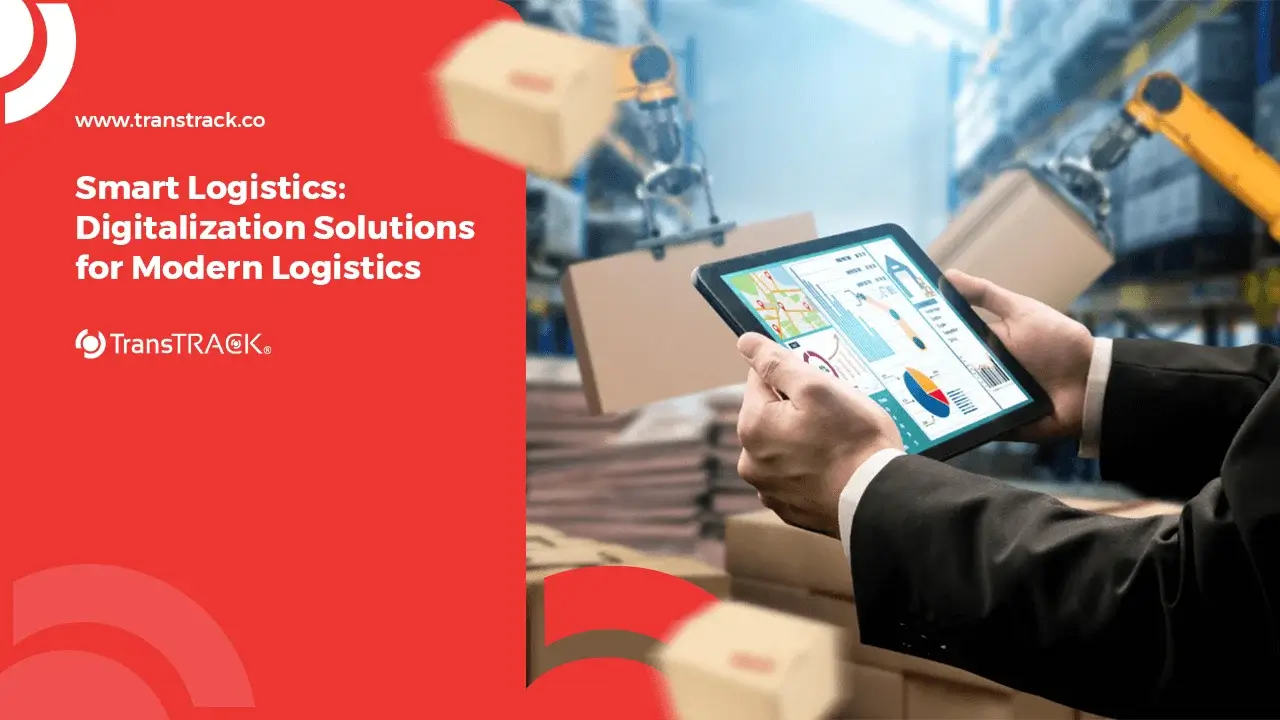
Digital transformation is changing the logistics landscape around the world, including Indonesia. The trend of global logistics digitization is driving companies to adopt advanced technologies such as the Internet of Things (IoT), Artificial Intelligence (AI), and data analytics to improve the efficiency and speed of goods distribution.
On the other hand, conventional logistics challenges—ranging from high operational costs and delivery delays to a lack of supply chain transparency—make it difficult for many businesses to meet increasingly dynamic market demands.
In this context, smart logistics provides a comprehensive solution. By utilizing digital technology, this system is able to optimize delivery processes, provide real-time visibility, and reduce costs, enabling companies to compete more effectively while providing reliable services to customers. Learn more with TransTRACK!
Apa Itu Smart Logistics
Smart Logistics is a logistics management concept that utilizes digital technology, real-time data, and automation to improve the efficiency, speed, and accuracy of supply chain processes. Through the integration of the Internet of Things (IoT), Artificial Intelligence (AI), Big Data, and advanced analytics systems, Smart Logistics enables companies to monitor, control, and optimize the movement of goods from raw material procurement to distribution to end consumers.
Key Components of Smart Logistics
To create a smart and integrated logistics ecosystem, several mutually supportive technological pillars are required. Each of the following components plays an important role in creating an efficient, transparent distribution flow that is responsive to market needs:
- Internet of Things (IoT)
- Artificial Intelligence (AI)
- Big Data & Analytics
- Cloud Computing
- Warehouse Robotics & Automation
Key Benefits
The implementation of Smart Logistics provides strategic advantages that directly impact business performance and operational sustainability. Here are the main benefits:
- Transportation and Warehousing Cost Efficiency. Real-time monitoring technology and process automation help reduce operating costs, from fuel consumption to inventory management.
- On-Time Delivery with Optimal Routes
- Supply Chain Transparency (Visibility)
- Carbon Emission Reduction through Fleet Optimization
Steps to Start Smart Logistics for Your Business
To effectively adopt Smart Logistics, companies need to carefully plan each stage so that their technology investments yield maximum results. Here are the steps to follow:
1. Supply Chain Requirements Analysis
Identify challenges and opportunities in the company’s logistics processes, such as fleet capacity, demand levels, and points prone to delays.
2. Choosing the Right Platform/Logistics Partner
Identify technology solution providers or logistics partners capable of providing services tailored to your needs, ranging from real-time monitoring to data analytics.
3. IT System Integration and Team Training
Ensure that the new system is connected to the existing infrastructure, then provide training to employees so that they can make optimal use of the Smart Logistics features.
4. Evaluate ROI and Sustainability
Measure the return on investment and design a sustainability strategy to ensure that the technology continues to provide long-term efficiency.
Conclusion
Smart Logistics brings about a comprehensive transformation in supply chain management by combining technologies such as IoT, AI, Big Data, Cloud Computing, as well as robotics and warehouse automation. Its implementation enables companies to achieve cost efficiency, delivery accuracy, process transparency, and even carbon emission reduction.
With well-planned implementation steps—ranging from needs analysis, selection of the right platform or partner, system integration, to ROI evaluation—businesses can leverage the potential of Smart Logistics to enhance competitiveness and long-term sustainability.
FAQ Smart Logistics
1. What is smart logistics?
Smart logistics is a supply chain management system that combines digital technology, data analytics, and automation to optimize the movement of goods from suppliers to end consumers.
2. What technologies are used in smart logistics?
Key technologies include Internet of Things (IoT) for sensors and real-time tracking, Artificial Intelligence (AI) for route prediction and optimization, Big Data & Analytics for data-driven decision making, Cloud Computing for system integration, and robotics and warehouse automation to accelerate storage and distribution processes.
3. What is the difference between smart logistics and conventional logistics?
Smart logistics utilizes real-time monitoring, predictive analytics, and digital integration, while conventional logistics relies more on manual processes and limited monitoring, making it less efficient and less transparent.
4. How does smart logistics improve supply chain efficiency?
With data analysis and automatic route optimization, smart logistics reduces transportation costs, speeds up delivery, reduces human error, and provides comprehensive visibility at every stage of distribution.
5. What are some examples of smart logistics applications in Indonesia?
Examples include the use of real-time fleet management systems, temperature monitoring for pharmaceutical distribution, and IoT-based warehouse integration by e-commerce companies, manufacturers, and national logistics service providers.
Smart Logistics is not just a trend, but a strategic necessity to face increasingly fierce business competition. By integrating technologies such as IoT, AI, Big Data, and automation, companies can improve efficiency, ensure timely deliveries, and create a transparent and sustainable supply chain.

To ensure optimal implementation, reliable fleet monitoring is key. TransTRACK’s Fleet Management System offers real-time monitoring, route optimization, and data analytics solutions that help companies control operating costs while maintaining delivery accuracy.
Improve your logistics performance now with TransTRACK’s Fleet Management System, and create an efficient, transparent, and environmentally friendly Smart Logistics ecosystem.
Recent Post
Complete Guide to Reducing Loss Cargo Risks in the Logistics Business
February 23, 2026Managing an Integrated Cold Chain to Minimize Risk and Loss
February 20, 2026Topic :
Recommended Articles

 Bahasa Indonesia
Bahasa Indonesia



